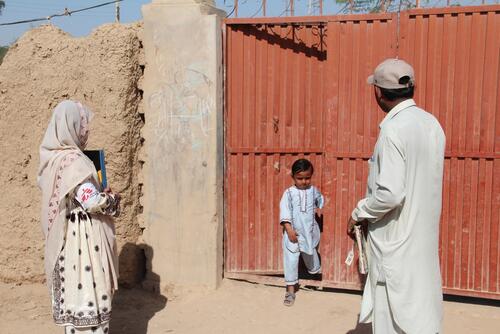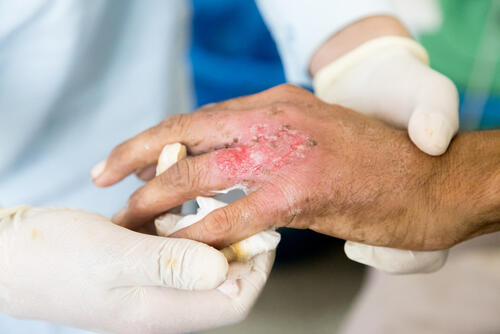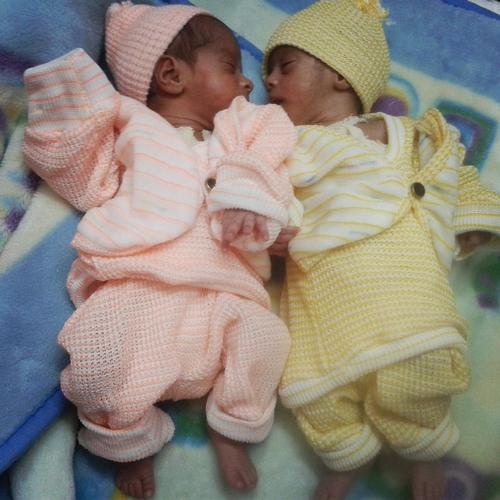Médecins Sans Frontières (MSF) treats nearly 10,000 malnourished children each year in the town of Dera Murad Jamali and surroundings, in the southwestern Pakistani province of Balochistan. Levels of malnutrition in this part of Balochistan are among the highest in the country. Patients, their caretakers and doctors tell us reasons why.
Background
MSF has been working in Pakistan since 1986. In eastern Balochistan, MSF runs an inpatient and outpatient therapeutic feeding programme and a paediatric care unit for children under five, as well as a neonatal ward in the District Headquarters Hospital in Dera Murad Jamali. In the nearby locations of Dera Allah Yar and Usta Mohammad, MSF also runs outpatient therapeutic feeding programmes. From January until October this year, 7,639 malnourished children were cared for in the programme.
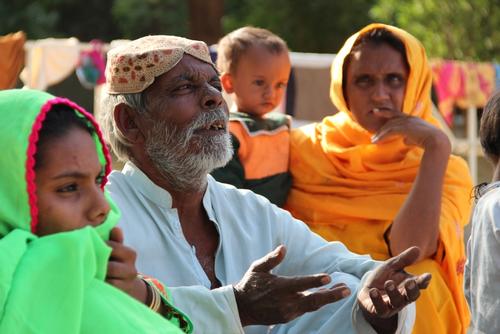
Portraits
Ahmed Lahi Day
Farmer, 65, from Tipul Shah, waiting with relatives outside District Headquarters (DHQ) Hospital in Dera Murad Jamali for his grandson to be discharged.
We are a family of farmers. We work the whole day, from dawn to dusk, in order to earn a few rupees. We harvest the rice, we dry the crop, collect it and then separate the grain. Sometimes we get sick and we have to come to this hospital. We can’t afford to go to a private clinic. For the past four or five years, I have been bringing my children here whenever they get sick, have diarrhoea or vomiting. MSF doctors say my grandson Abdurraman is malnourished. He is eight months old and has been in the ward for the past five days. He has been given medicines and is now fine. He will be discharged soon. We have to wait outside – there is only space inside for the mother. I will sleep outside with a blanket while I wait for them.
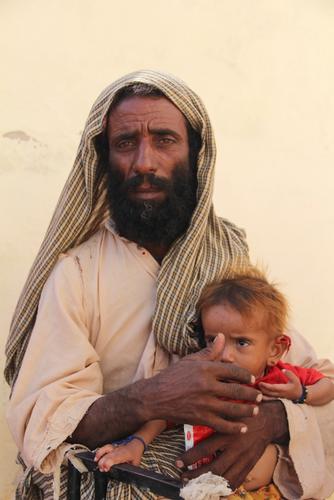
Jongel Bugti
Caretaker, 40. He has brought his nephew to MSF’s outpatient therapeutic feeding programme in Dera Allah Yar.
My nephew is one year old and weighs only 5.5 kg. This is the fourth time I have visited MSF’s programme. I used to go to the clinic in my hometown of Sobatpur, but then it was closed. Now we have to pay for transport, but the treatment is good for our children, so we keep on coming. The doctors give us some kind of chocolate called Plumpy’Nut. With this medicine the children get better – it is not just my experience, everybody says the same here. I work the whole day to earn my living. Our women also work in the field because we are poor. They don’t have time to breastfeed their children. Our main problem in Balochistan is the lack of education. This is the biggest constraint to change for the better.
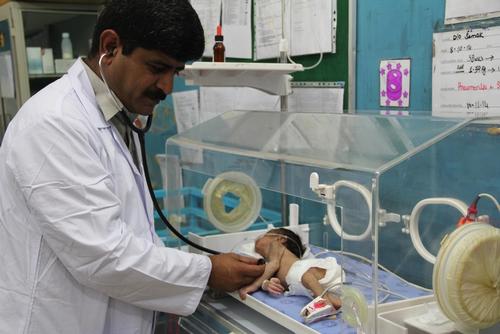
Dr Barkat Hussain
MSF paediatrician at the DHQ Hospital in Dera Murad Jamali
Ninety percent of the patients admitted here are nutritional cases. They come to us with secondary problems, not for malnutrition, but when we talk to them about it, they come to know that their child’s basic problem is malnutrition. They don’t know if their baby is growing or not. They only know that the baby has pneumonia, diarrhoea or vomiting. In this area malnutrition is a very big problem and there are lots of reasons. It is not only poverty but also lack of education. Most people don’t have good medical facilities when the baby is born. Mothers breastfeed, but due to lack of education they change the pattern of feeding. If they start breastfeeding they also give supportive bottle feeding and other things, and then the baby is away from breastfeeding and becomes malnourished, mostly in the initial days. Breastfeeding is best for the children. It is free, easily available and strengthens the immune system.

Lal Kahu
Mother, 20, whose four-month-old son has been admitted to MSF’s inpatient therapeutic feeding programme.
My home is one hour away from Dera Murad Jamali. We live close to rice fields and work there. I went to a private clinic but a doctor recommended me to come here for treatment for my child. These services are different from others. I feel a relief knowing that there is always someone in charge of my baby. They are giving infusions and medication to him. He is getting better after four days of treatment. When we came, the baby was vomiting and had diarrhoea. I stopped breastfeeding him after one month because I thought it was bad for the baby and I had little breast milk. I started giving formula milk. Doctors say I should continue breastfeeding. I will try to do so.



